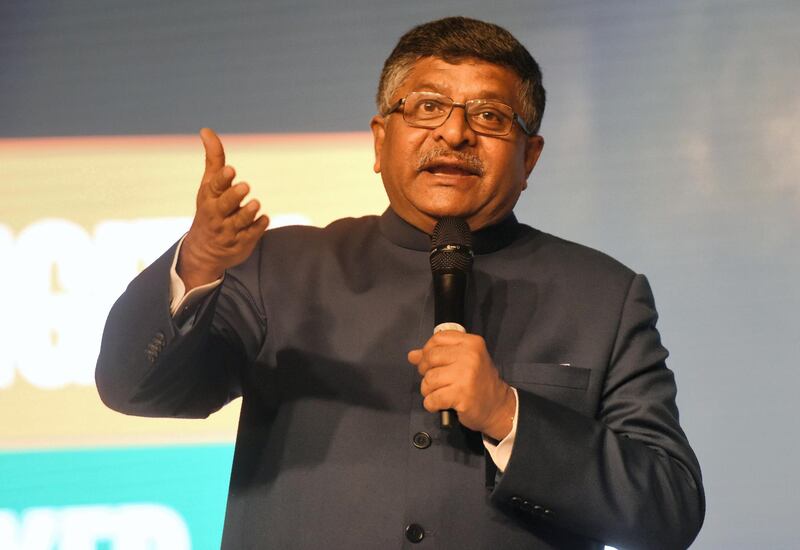The controversy over Cambridge Analytica, the British firm accused of harvesting Facebook data to influence politics, has spread to India.
Evidence that Cambridge Analytica's chief executive, its parent company, and a local affiliate were involved in Indian elections has prompted the country's two biggest political parties, the Congress and the Bharatiya Janata Party (BJP), to accuse each other of relying upon the unethical practices Cambridge Analytica is accused of.
Ravi Shankar Prasad, the BJP government's IT minister, claimed that Cambridge Analytica was already running outreach and social media for the Congress president, Rahul Gandhi, and that the firm and the party had agreed to work together for next year's general election. He also pointed out that the company's partner in India, Ovleno Business Intelligence listed the party's youth wing in the state of Jharkhand as one of its clients
“My question to the party is whether, to win elections, Congress will depend on data manipulation and theft of data?” Mr Prasad said. “Will the Congress now depend on data manipulation and theft to woo the voters? Will they adopt sex, sleaze and fake news to win elections?”
Randeep Surjewala, a Congress spokesman, denied that his party had ever employed the firm. In turn, he alleged that the BJP had hired Ovleno to work on its successful general election campaign in 2014.
Founded in 2010, Ovleno partnered with Strategic Communications Laboratories (SCL), Cambridge Analytica’s parent company, the following year to set up SCL India, a firm that collects voter data, researches caste stratifications and advises electoral campaigns.
Alexander Nix, the recently suspended chief executive of Cambridge Analytica, is listed as one of the directors of SCL India.
SCL India has offices in 10 Indian states and 300 employees, as well as 1,400 consulting staff, according to Ovleno’s website, which the company took offline on Wednesday. SCL India has no website of its own.
_______________
Read more:
[ Whistleblower Christopher Wylie reveals Cambridge Analytica’s dark arts ]
[ Zuckerberg admits 'mistakes' over Facebook data scandal and vows fix ]
[ Alexander Nix brought low after pioneering data-driven political campaigns ]
_______________
Ovleno had previously worked with the Congress, the BJP and a regional party called the Janata Dal (United) in several state elections, the website said. Cambridge Analytica’s website claims that it worked on “in-depth electorate analysis” in Bihar during a state election in 2010, giving its client, the Janata Dal (United), “a landslide victory”.
Since Cambridge Analytica was set up only in 2013, the reference to the 2010 election is likely to refer to Ovleno’s work in Bihar.
Himanshu Sharma, one of the directors of Ovleno, had claimed on his LinkedIn profile that he had “successfully managed 4 election campaigns" for the BJP and helped it achieve “its target of Mission 272+” — the party’s campaign to win more than 272 seats in parliament in 2014.
Mr Sharma subsequently removed references to the 2014 election from his LinkedIn page.
Additionally, the Hindustan Times newspaper reported that Ovleno and Cambridge Analytica were jointly in talks with both the Congress and the BJP to consult on their 2019 general election campaigns.
Ovleno’s chief executive, Amrish Tyagi, was not reachable for comment on Thursday. He has previously denied that Ovleno conducts Cambridge Analytica-style profiling of voters.
There has been no indication that Ovleno and SCL India harvested data from social media the way Cambridge Analytica did ahead of the 2016 US presidential election. But the IT minister warned Facebook that its data on Indians was not to be used or sold for political purposes.
“If any data theft of Indians is done with the collusion of Facebook, this shall not be tolerated. We have stringent power under the [Information Technology] Act," Mr Prasad said in a warning to Mark Zuckerberg, Facebook’s chief executive. "We shall use it, including to summon you to India.”
Samir Saran, vice president of the Observer Research Foundation, a New Delhi-based think tank, worried that the increasing ease of influencing elections using digital material left countries vulnerable to hostile powers.
“Now if Pakistan wants to play havoc with your elections, and you allow capture of [data from] sites and transfer of data easily to others, Pakistan could be deciding [our] next election,” he said.





